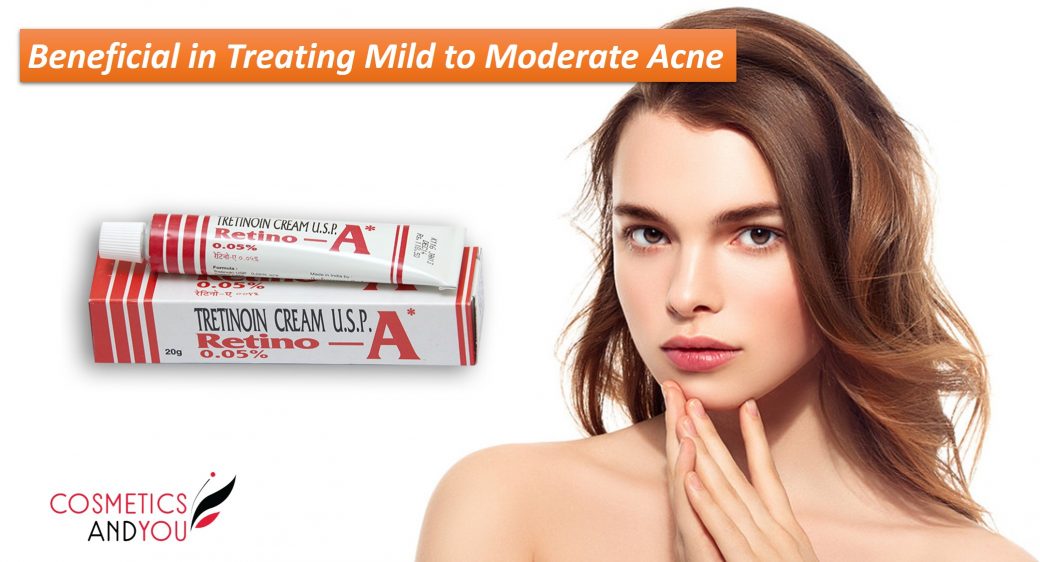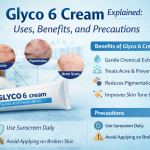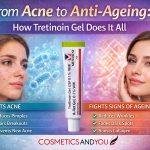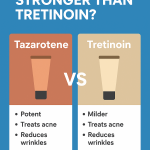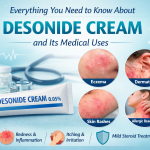Available as a topical preparation, tretinoin is a retinoid widely used to treat acne vulgaris and reverse the signs of ageing. However, it is most commonly used for removing acne. Tretinoin is an active ingredient in the most effective acne solutions. It is believed to be effective in treating facial acne by clearing pores and preventing breakouts. This is why Tretinoin is widely used as an acne agent and one of the most effective acne treatments available today. Apart from treating acne, tretinoin is also added to antiaging products, which are extremely effective at reducing the appearance of fine lines and wrinkles. It is a safe and effective medication that has been approved and clinically tested for the treatment of acne. Like other medications, Tretinoin is available in various strengths and can be used by acne sufferers as needed. In this guide, we will provide essential information on tretinoin, including uses, potential side effects, and usage instructions to help you stay informed as a user.
Benefits of Tretinoin
Firstly, what is Tretinoin? It is a vitamin A derivative used as a topical treatment for a variety of skin problems, including acne, rosacea, melasma, ageing skin, and more. This drug belongs to the class of medications known as retinoids that are believed to interfere with skin cell growth. One of the most widely used tretinoin brands is Retino cream. Much clinical research has been performed on this drug, and experts agree that it not only removes pimples but also offers anti-ageing benefits to the skin. Retino-A cream has been proven to reduce the appearance of acne, fine lines, and wrinkles, resulting in a more youthful appearance. Tretinoin helps loosen and remove dead cells from the skin’s surface. The availability of skin agents, such as creams and gels, allows people to choose products based on their skin type. When it comes to preventing age spots, Tretinoin stimulates collagen production in the skin, strengthening its structure and resulting in spotless, youthful skin.
Acne Benefits
Tretinoin is beneficial for treating mild to moderate acne because it helps remove dead skin cells, unclog pores, and prevent the formation of blackheads and whiteheads. Clogging of pores leads to the formation of inflammatory acne caused by anaerobic bacteria. People who use Tretinoin for acne typically use a gel or a cream for several weeks before noticing significant changes in the shape and size of their pimples. Initially, a retinoid preparation can make your acne worse before you see improvement. However, once you get used to it and use it for a few weeks, you will find that tretinoin is highly effective at reducing acne and improving skin health. According to experts, people using tretinoin cream may experience a significant reduction in acne and facial lesions after 12 weeks of treatment. When used in combination with other skincare ingredients such as benzoyl peroxide and clindamycin, the greatest reduction in acne is observed over the 12-week treatment period. Are you interested in using tretinoin cream or gel to reduce and treat acne? If so, buy retino online at an affordable price. Tretinoin, as a treatment, addresses almost all skincare issues, from acne to ageing skin. It is considered an effective way to deal with stubborn skin problems.
Anti-Aging Properties
In addition to having exfoliating and comedogenic properties, A retinoid formulation also participates in building collagen fibres under the skin’s surface. It strengthens the skin at a structural level, which ultimately leads to a more youthful appearance. Tretinoin is widely used to prevent facial wrinkles and age spots. The product has been studied widely for its anti-ageing benefits. Several clinical research types examine the skincare ingredient to reverse signs of ageing, such as fine lines, wrinkles, sun damage, and other age spots. Over the course of eight weeks, users can see a significant change in facial skin ageing. They will find their fine lines and wrinkles have faded to a great extent. Are you considering Tretinoin as your first choice for treating ageing skin? If so, speak to your dermatologist and get more details on the anti-ageing benefits of Tretinoin, as well as its safety as an anti-ageing medicine.
Clears Sun Damage
Dermatologists also recommend retinoids to repair discoloured areas of the face caused by harmful UV rays. Many skin experts recommend tretinoin as part of their skincare regimen to protect the skin from ultraviolet rays.
Tretinoin Side Effects
Like other skincare treatments, Tretinoin has some side effects. Generally, skincare medicine is safe, tolerable, and effective. However, some users experience adverse effects ranging from mild to severe ones that include minor skin irritation that goes away within some time, and more severe side effects can occur with long-term use of tretinoin. The most commonly reported side effect is a stinging sensation in the skin; it usually occurs immediately after applying Retino-A cream. This burning sensation is often accompanied by dry and patchy skin, mild scaling, and skin redness.
A Tretinoin cream or gel can make your acne worse before it gets better. However, the condition will be temporary and will go away after two to four weeks of tretinoin use. Most minor side effects disappear on their own over time, while others, such as dry or scaly skin, can be easily treated with a moisturiser or a skincare product that helps prevent Tretinoin-induced dryness.
Some serious side effects of Tretinoin include eyelid swelling, blisters, skin discolouration, facial swelling, and burning. These are uncommon and rarely experienced by people using tretinoin. However, if it occurs, these uncommon side effects require immediate medical attention. If you would like to learn more about the side effects, contact a dermatologist to clear your doubts.

